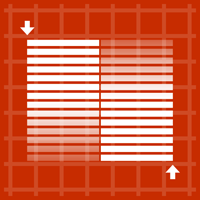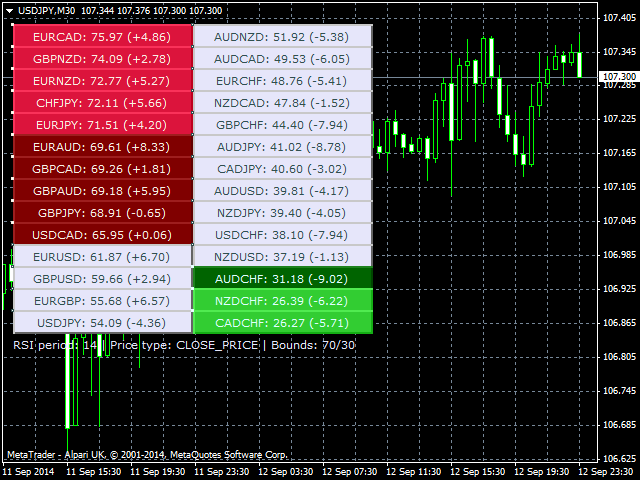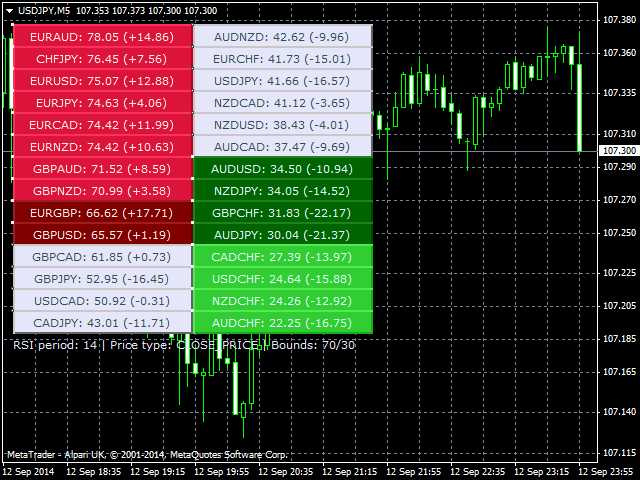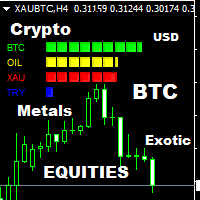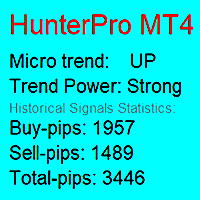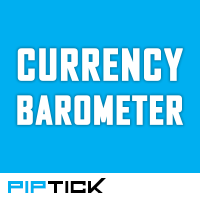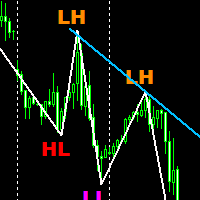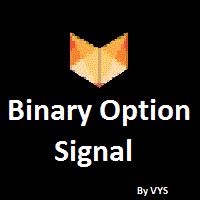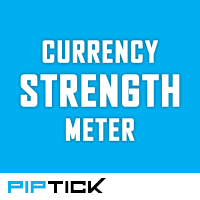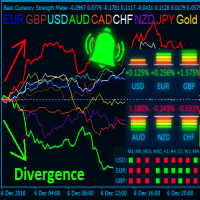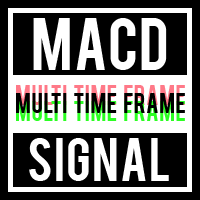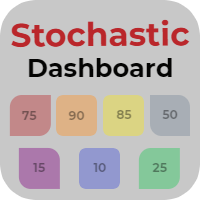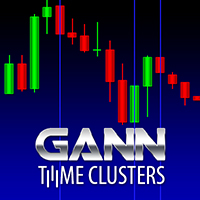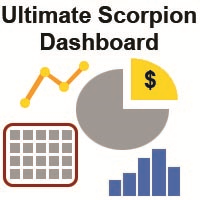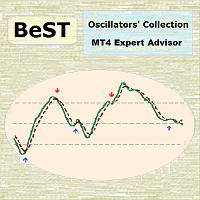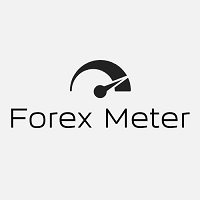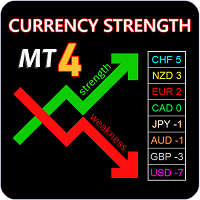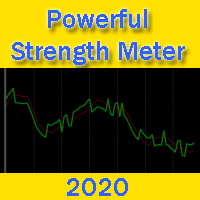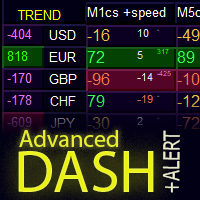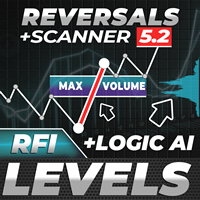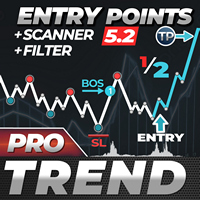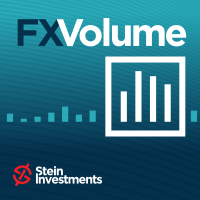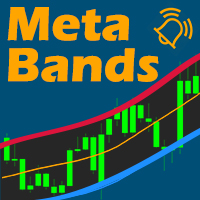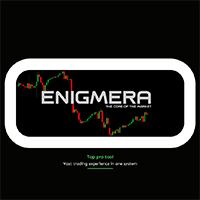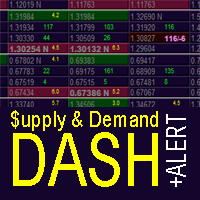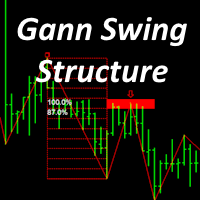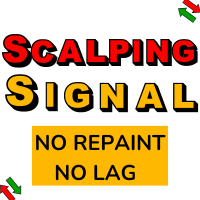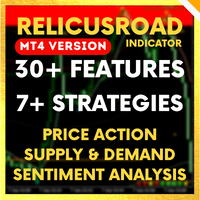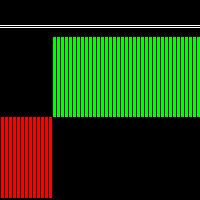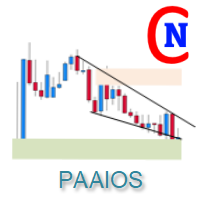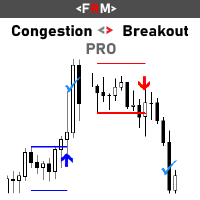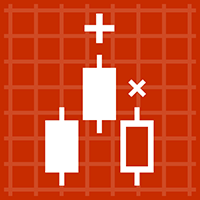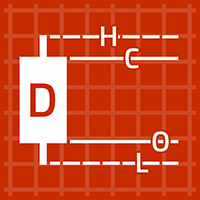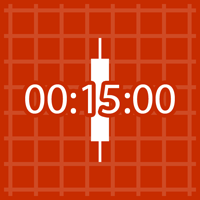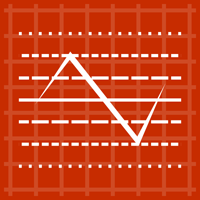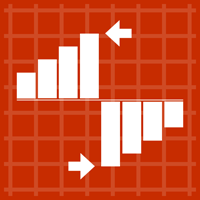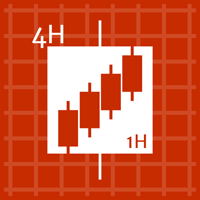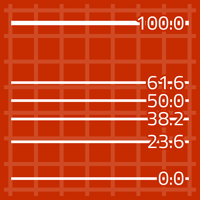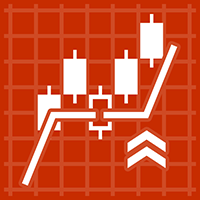TIL Multi RSI Indicator
- 지표
- Viktor Macariola
- 버전: 1.1
- 업데이트됨: 21 11월 2021
- 활성화: 20
TIL Multi RSI indicator applies RSI to 28 currency pairs all at once and displays the most current signal of each one in a two-column list. The currency pairs involved are the combinations of the eight major currencies (USD, EUR, GBP, CHF, JPY, CAD, AUD, and NZD). All the currency pairs are sorted automatically from the one with the highest signal down to the one with the lowest signal in a two-column list starting from the top left to the bottom right.
Just a quick recap on what the Relative Strength Index or the RSI is: It is a technical indicator that attempts to determine whether an asset is overbought or oversold. Its signal oscillates in the range of 0 to 100. A currency pair is said to be overbought if the RSI signal is 70 or above and is said to be oversold if the RSI signal is 30 or below.
With TIL Multi RSI, you can easily spot trading opportunities across the 28 currency pairs in one glance! Just observe the following properties of the indicator:
Order: The indicator displays the most current RSI signal of each currency pair which is sorted from highest to lowest. This means that those that are positioned at the left-hand side of the list are closer to the overbought level (70). Likewise, the currency pairs that are positioned at the right-hand side of the list are closer to the oversold level (30).
Color: Each currency pair is color coded depending on the signal of its RSI.
- Bright Red - RSI is equal to or greater than 70. This is a bearish signal which suggests that the currency pair is overbought.
- Dark Red - RSI is near the overbought level. This suggests that you may have to watch out for this currency pair as its signal approaches 70.
- Grey - RSI is nowhere near overbought or oversold levels.
- Bright Green - RSI is equal to or less than 30. This is a bullish signal which suggests that the currency pair is oversold.
- Dark Green - RSI is near the oversold level. This suggests that you may have to watch out for this currency pair as it approaches 30.
- <symbol> - this is the symbol of the currency pair.
- <RSI signal> - this is the most current RSI signal of the corresponding currency pair.
- +/-<orientation> - this tells you the direction and the magnitude of the corresponding currency pair's RSI signal. It answers the question, "Is it pointing up or down?"
- Orientation - this is the amount of change that had taken place since the last bar's RSI signal relative to the most current one.
- Positive orientation (+) - if the orientation is positive, it means that the last bar's RSI signal is less than the current one. In other words, the currency pair's RSI is going UPWARDS.
- Negative orientation (-) - if the orientation is negative, it means that the last bar's RSI is greater than the current one. In other words, the currency pair's RSI is going DOWNWARDS.
Here is an example: EURUSD: 71.02 (+2.87). Keeping in mind the notation, we can easily read the example above:
- The currency pair is EURUSD.
- The current RSI signal of EURUSD is 71.02 (because it is greater than the overbought level of 70, it would be bright green).
- The RSI of EURUSD is going upwards because according to its orientation, its RSI rose (positive) by 2.87 points.
Aside from these indicator properties, you can also see some of the settings of the indicator below like the RSI period, the price type, and the bounds. This leads us to the indicator parameters:
- RSI period - this is the period of the RSI that you want to apply across the 28 currency pairs. The default is 14.
- Price type - this allows you to select, which type of price you want the RSI indicator base its calculations on. Normally, the MT4 native RSI indicator uses the Close price and this is also the default for TIL Multi RSI. Here are all the options:
- CLOSE_PRICE (default) - the price when the bar closed.
- OPEN_PRICE - the price when the bar opened.
- HIGH_PRICE - the highest price within the lifetime of the bar.
- LOW_PRICE - the lowest price within the lifetime of the bar.
